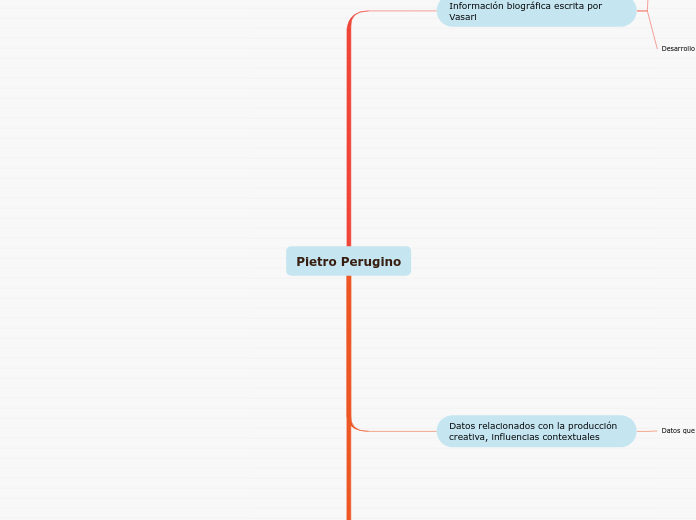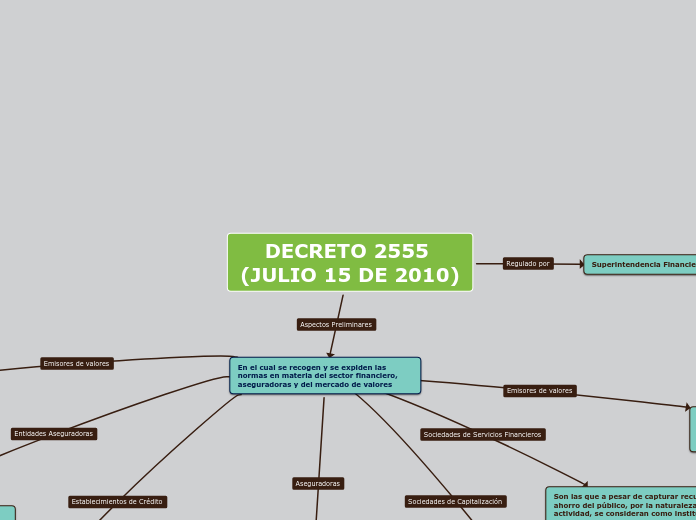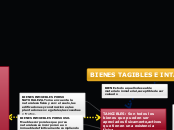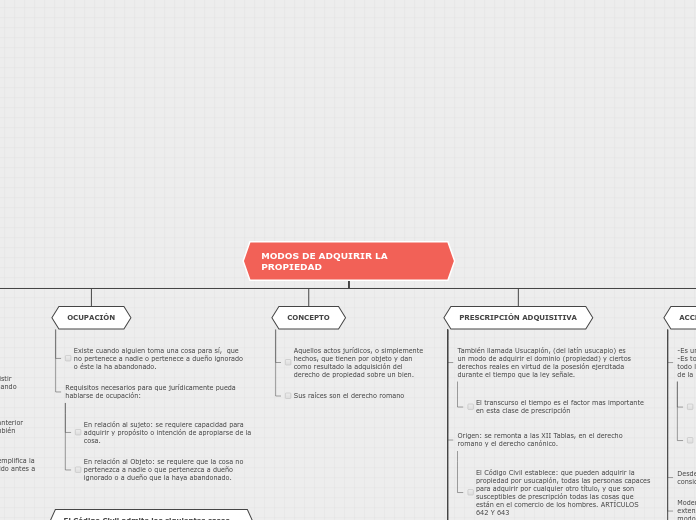Pietro Perugino
To name your story, you have to think about the overall message and what you want your audience to understand from the story. Also, make it relevant and easy to remember.
Comentario u opinión personal de Vasari
The ending of a story is essential. We all know that if the ending is weak, what happened before loses its importance. So make it unpredictable, but fair. A resolved ending answers all the questions and ties up any loose threads from the plot.
Consideraciones de Vasari respecto a Pietro
This is the moment when the main character surpasses the last obstacle and finally faces their greatest challenge.
The climax usually follows one of these patterns:
- realization
- resolution
- choice
Type in your answer.
Sin embargo, Vasari considera que con el paso del tiempo y a consecuencia de tantos encargos que recibía Pietro, su trabajo se volvió repetitivo y muy parecido entre sí
Menciona como hermosas muchas de sus pinturas
Vasari menciona reiteradas veces que Pietro era un destacado colorista
Vasari describe constantemente la obra de Pietro como un ejemplo de excelencia en la pintura
Vasari considera que el hecho de que Pietro haya nacido en la pobreza jugó un papel fundamental en su éxito y desarrollo como pintor, ya que lo impulsó a innovar y ser constante en el ejercicio de perfeccionar su pintura
Datos relacionados con la producción creativa, influencias contextuales
The middle of the story is where you add layers of complications that will lead to the end. Reveal more about the character's journey. Did their personality go through changes? How did they overcome the challenges? And as you build up the story’s central conflict, make it more personal to that character. Also, from the middle act, you have to lead into the final act.
Datos que brinda Vasari
Each story has a main character and that character usually needs to solve a problem or challenge. The character's challenge is the one that creates tension throughout the story.
Algunos de sus discípulos fueron: Rafael Sanzio de Urbino, Pinturicchio, Rocco Zoppo, Gerino de Pistoia, Francesco el Bacchiacca, Juan el Español, y el más sobresaliente Andrea Luigi de Asís entre otros. Muchos de ellos conservaron en su estilo las influencias de Pietro y llegaron a ser también pintores de renombre.
Muchas de las obras de Pietro no se conservan por diversos motivos
A pesar de ser un excelente pintor y colorista, algunas de sus pinturas se oscurecieron, ya que la técnica del óleo era relativamente nueva
Una parte fundamental en la producción de Pietro era su constancia en la práctica de la pintura
Pietro realizaba principalmente obras de carácter religioso pero también llegó a realizar paisajes con gran maestría
En el taller de Andrea Verrocchio y en la Capilla del Papa Sixto IV tuvo la oportunidad de trabajar junto a los pintores más famosos y talentosos de la época
Al ganar fama dentro y fuera de Florencia, recibía demasiados encargos, lo que resultaba bueno para él pero también tenía consecuencias negativas, como el volver su trabajo repetitivo
Type in any other challenges which other characters in the story need to face.
Pietro era muy constante en la realización de pinturas
In most stories, there are 3 challenges. The number 3 is a mystical number symbolizing completeness. Try to come up with interesting challenges with which your character needs to struggle.
See a few examples below:
- turns into a werewolf at night
- is sent back in time
Al llegar a Florencia, fue discípulo de Andrea Verrocchio, que, al dirigir sus estudios, también fue una influencia para Pietro
Una influencia importante en la vida de Pietro, fue el pintor del cual era mandadero, pues él logró despertar su interés en la pintura, además de que lo impulsó para trasladarse a Florencia, en donde ganaría fama y renombre
Información biográfica escrita por Vasari
In the beginning of the story (or the exposition), you will need to introduce the setting and characters. You might also want to introduce the main conflict. This part of the story is important because it gives the reader necessary background information and maybe even a first insight into a character’s personality.
Desarrollo como pintor y vida adulta
The setting (time & place) of a story can change throughout the plot.
Rumores y conflictos
The time of the story can also change. It can describe the event of a single day or can include an entire year's plot. Anyway, don't forget to mention it.
Con el surgimiento de Miguel Ángel, Pietro temió verse eclipsado, por lo que su actitud se tornó hiriente y Miguel Ángel lo describió públicamente como un artista grosero
Cuando contrajo matrimonio le gustaba que su esposa vistiera bien en todo momento e incluso se cuenta que él la arreglaba
Se dice que el prior del convento de los Jesuitas era un hombre tacaño y desconfiado y que además, conocía el proceso de fabricación del azul ultramar y quería estar presente cuando Pietro lo utilizaba. Pietro para darle una lección, le pedía mucho pigmento y en lugar de usarlo, lo enjuagaba y después recuperaba lo asentado en el agua hasta que finalmente se lo devolvió al prior
Se dice que en una ocasión Francesco del Pugliese quiso pagar a unas monjas tres veces la cantidad que ellas habían pagado a Pietro por una de sus pinturas para poder adquirirla él
Datos biográficos
Your story can take place wherever your imagination will take you to.
For example: in an elevator, in an enchanted forest, etc. Don't forget to give details of the environment each time the setting changes, otherwise, the story can be confusing. Also, mention the seasons as each of them has unique weather and events.
Murió a la edad de sesenta y ocho años y fue sepultado con honores
Los bienes materiales eran de suma importancia para Pietro y adquirió varias propiedades en Florencia, Perusa y Castello
Era muy desconfiado y solía cargar consigo su dinero, en una ocasión mientras volvía de Castello a Perusa fue asaltado y eso lo dejó al borde de la muerte
Pietro nunca fue religioso
La Orden de los Servitas le encargó terminar dos pinturas para su altar mayor, el resultado no fue el esperado y eso le trajo desprestigio a Pietro, por lo que volvió a Perusa
Fue invitado por el Papa Sixto IV a trasladarse a Roma y trabajar en su capilla
Al llegar a Florencia, pronto ganó tanta fama que tuvo que trasladarse a Siena
Origen y formación
Characters are essential to a good story. Usually, the protagonist(s) is/are the most affected by the plot. Introduce a character by focusing on their actions, interests, and occupation, as the physical appearance doesn't make a difference in most cases.
Inicios
Type in the name of your character.
Estudió bajo la dirección de Andrea Verrocchio
Add other qualities/attributes of the character.
Motivado por el pintor, se trasladó a Florencia
What is your character's main goal?
fight Evilfind lovedefeat his/her enemyrule the worldmake friendstime travelmake an awesome discoveryOther
Fue mandadero de un pintor que impulsó su desarrollo en la pintura
Which traits best describe the character's personality? Choose more if necessary:
introvertedloyalkindindependentquick-thinkingadventuresomeidealisticsweet-naturedcalmrisk-takercreativewittystrictfussyweirdclumsyharshaggressivecarelessclingingcowardlycrueldeceitfulimpulsiveOther
Nació en medio de la pobreza en Perusa
Choose the type of your chacter:
Protagonist (main character)Antagonist (main character's opponent)Flat (stereotypical character)Round (his/ her personality develops throughout the story)Static (doesn't evolve as a person throughout the story)Dynamic (dramatical change in personality)Confidant (the main character trusts him/ her)Foil (contrasting character who enhances the personality of another character)Other










